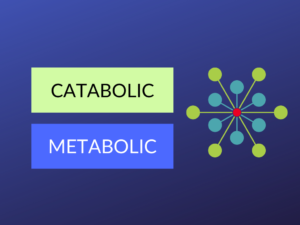Hypo thyroid vs. Hyper thyroid
What is Hypo thyroid?
Hypo thyroid, also known as hypothyroidism, is a condition where the thyroid gland does not produce enough thyroid hormone. This hormone plays a crucial role in regulating the body’s metabolism, energy production, and growth. In hypo thyroid, the decreased levels of thyroid hormone can lead to various symptoms and health issues.
Examples of hypo thyroid:
- Fatigue
- Weight gain
- Dry skin and hair
- Depression
Uses of hypo thyroid:
Hypo thyroid medications, such as levothyroxine, are used to replace the deficient thyroid hormone and restore normal hormone levels in the body.
What is Hyper thyroid?
Hyper thyroid, also known as hyperthyroidism, is a condition where the thyroid gland produces an excess amount of thyroid hormone. This overactivity of the thyroid gland can cause an increased metabolic rate, leading to various symptoms and health complications.
Examples of hyper thyroid:
- Weight loss
- Rapid heartbeat
- Anxiety
- Insomnia
Uses of hyper thyroid:
Treatment for hyper thyroid aims to reduce the production of thyroid hormone and control its effects on the body. Medications such as beta blockers or anti-thyroid drugs are commonly used to manage the symptoms of hyper thyroid.
Differences Table:
| Difference Area | Hypo thyroid | Hyper thyroid |
|---|---|---|
| Thyroid Hormone Production | Decreased production of thyroid hormone | Excessive production of thyroid hormone |
| Metabolic Rate | Reduced metabolic rate | Elevated metabolic rate |
| Weight | Weight gain | Weight loss |
| Heart Rate | Slow heart rate | Rapid heart rate |
| Mood | Depression and fatigue | Anxiety and restlessness |
| Energy Levels | Low energy levels | High energy levels |
| Hair and Skin | Dry hair and skin | Moist and sweaty skin |
| Menstrual Changes | Irregular or heavy periods | Light or absent periods |
| Sleep Patterns | Excessive sleepiness | Insomnia |
| Treatment Approach | Hormone replacement therapy | Medications to suppress hormone production |
Conclusion:
In summary, hypo thyroid and hyper thyroid are two different conditions related to the thyroid gland. Hypo thyroid is characterized by decreased thyroid hormone production, resulting in symptoms such as weight gain, fatigue, and depression. On the other hand, hyper thyroid is marked by excessive thyroid hormone production, leading to weight loss, rapid heartbeat, and anxiety. The management approach for each condition differs, with hypo thyroid requiring hormone replacement therapy and hyper thyroid often being treated with medications to suppress hormone production.
People Also Ask:
- 1. Can hypothyroidism lead to weight gain?
- 2. What are the common symptoms of hyperthyroidism?
- 3. How is hypo thyroid diagnosed?
- 4. What are the treatment options for hyperthyroidism?
- 5. Can thyroid disorders affect fertility?
Yes, hypo thyroid can cause weight gain due to a decrease in metabolic rate and alterations in the body’s energy balance.
Common symptoms of hyper thyroid include weight loss, rapid heartbeat, and increased anxiety.
Hypo thyroid is diagnosed through blood tests to measure thyroid hormone levels and evaluate thyroid-stimulating hormone (TSH) levels.
Treatment options for hyperthyroidism include medications to suppress thyroid hormone production, radioactive iodine therapy, or surgery to remove the thyroid gland.
Thyroid disorders, both hypo and hyper thyroid, can affect fertility and menstrual regularity. It is important to manage these conditions to improve reproductive health.



